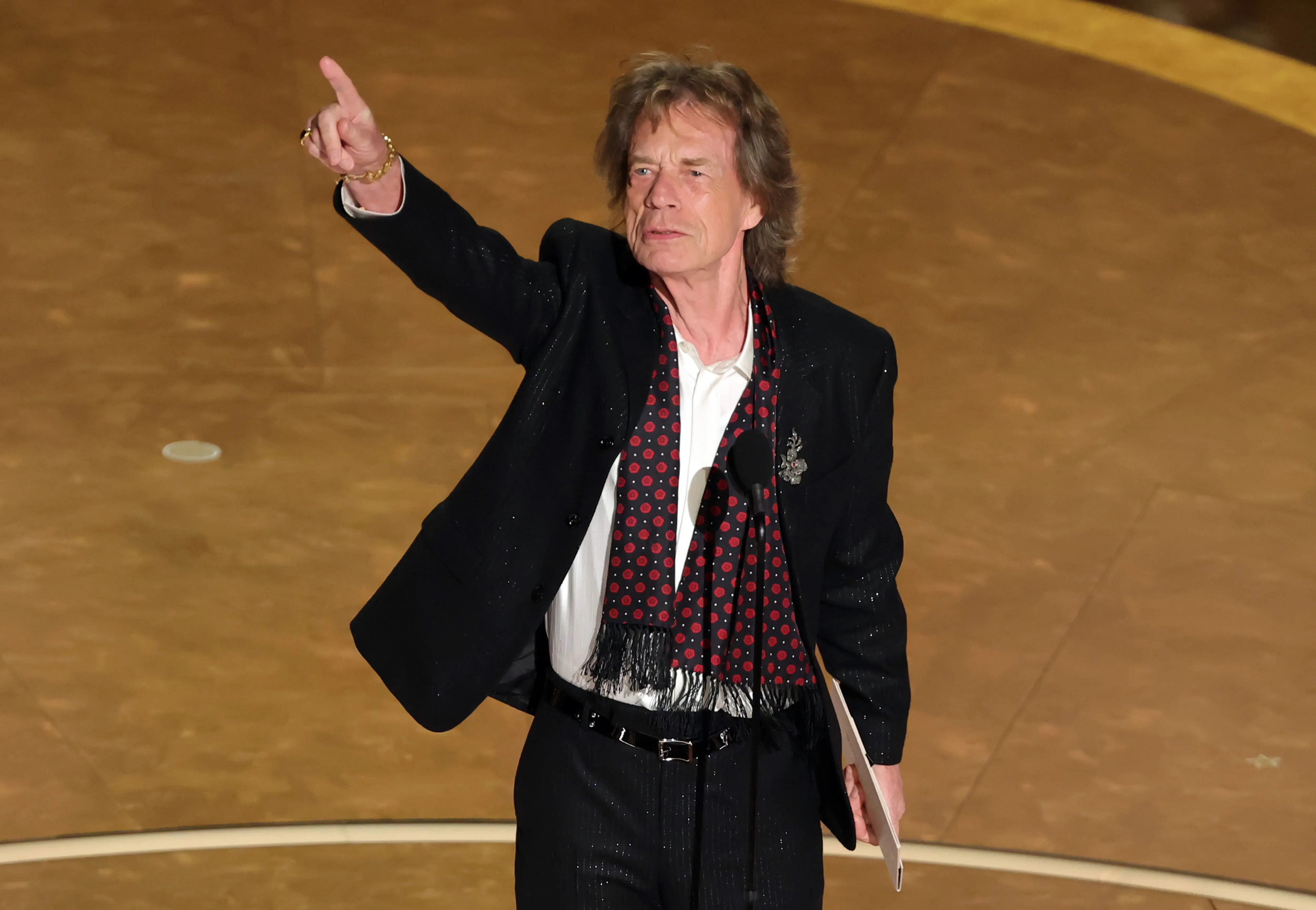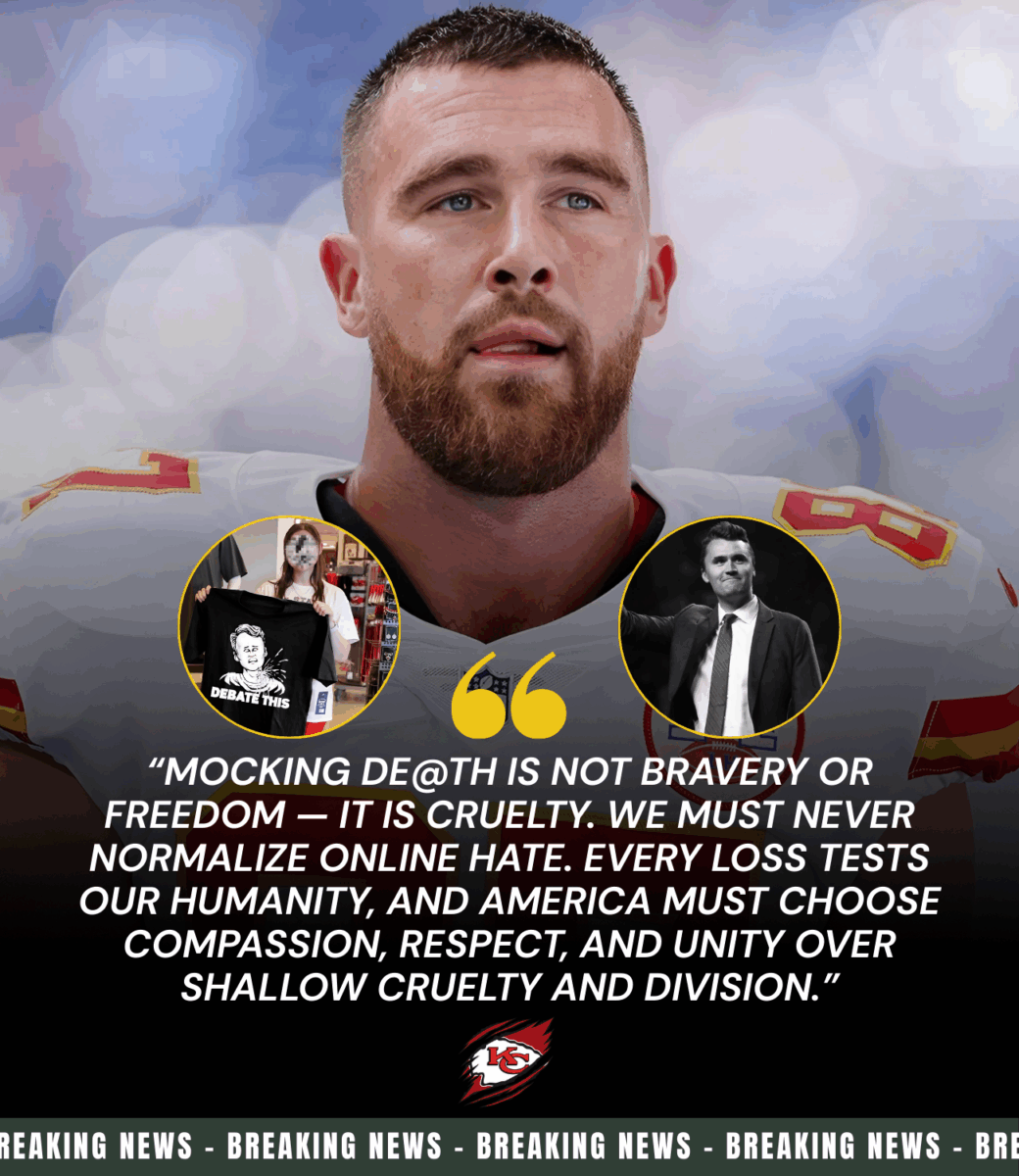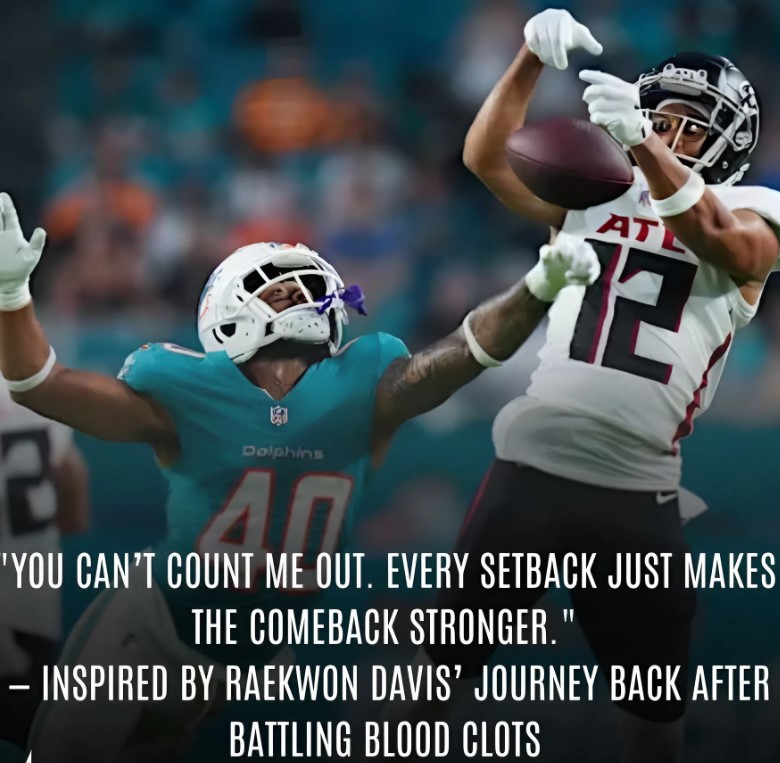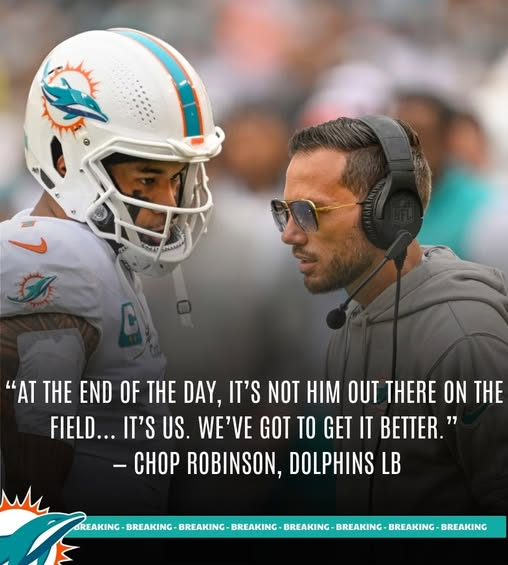Kansas City Chiefs star tight end Travis Kelce has broken his silence with a forceful condemnation following the controversy involving 911 dispatcher Haley Kreidel. After Kreidel mocked the assassination of activist Charlie Kirk in a series of social media posts that many have described as “heartless,” Kelce stepped forward with words that cut sharply through the noise. His statement—“Mocking death is not freedom, it’s cruelty”—has quickly spread across the nation, adding the voice of one of the NFL’s most recognizable figures to a heated debate about online behavior, freedom of expression, and basic human dignity.
A Champion’s Platform
Kelce, a two-time Super Bowl champion and one of the league’s most popular athletes, addressed reporters after practice at the Chiefs’ training facility. While the session was expected to focus on football and the upcoming NFL season, Kelce instead chose to use his platform to address what he called “a moral issue that goes beyond the game.”

“We live in a country where free speech is protected, and that’s something I value deeply,” Kelce began. “But mocking death isn’t freedom—it’s cruelty. We can debate policies, we can disagree on ideas, but death is never a punchline. It’s a test of our shared humanity.”
His words struck a chord immediately. Known for his charisma and larger-than-life personality both on and off the field, Kelce’s decision to speak in such somber tones underscored the weight of the moment.
The Kreidel Backlash
Haley Kreidel, a 911 dispatcher responsible for answering emergency calls and guiding first responders, ignited public outrage when screenshots surfaced of her mocking Kirk’s assassination. Critics pointed out the irony of someone tasked with protecting lives making light of a man’s death.
The posts spread quickly online, triggering waves of condemnation. Community leaders in Kansas City and beyond labeled the comments “inhumane” and “dangerously irresponsible.” For many, it was not simply about Kirk, but about the broader culture of cruelty that seems to thrive on social media.
Kelce Refuses to Stay Silent
While many public figures might have chosen to deflect questions or release carefully scripted statements, Kelce spoke with directness and passion. He did not shout, but his voice carried unmistakable conviction.
“America has always prided itself on freedom,” he said. “But freedom without respect is empty. If we start normalizing hate, if we accept mocking death as part of the online culture, then we’re losing something vital as a nation.”
Kelce stressed that his remarks were not about politics but about humanity. “You don’t have to agree with Charlie Kirk. You don’t even have to like him. But mocking his death crosses a line we should never cross. When we do that, we diminish ourselves.”
Support Inside the Locker Room
Kelce’s teammates reportedly rallied behind him after the press conference. Several Chiefs players praised his courage in speaking out. One defensive captain told local media: “That’s leadership. Travis didn’t have to say anything, but he did—and he said it in a way that everyone can respect.”

Chiefs head coach Andy Reid declined to comment directly on Kreidel but supported his player’s right to speak on important issues. “Travis has always been a leader on this team,” Reid said. “When he talks, people listen.”
Social Media Reactions
Almost instantly, Kelce’s words were clipped, shared, and discussed across platforms. Hashtags like #StandWithKelce and #HumanityFirst began trending, as fans praised his willingness to speak on an issue far removed from football.
“This is bigger than sports,” one fan wrote on X. “Kelce just reminded us all that being human comes before being political.” Another added: “I don’t always agree with athletes when they speak out, but this was powerful, respectful, and needed.”
Of course, there were detractors. A small but vocal group argued that Kelce should “stick to football.” Yet even among critics, many acknowledged that his words were measured rather than divisive.
The Broader Conversation
Kelce’s comments come at a time when the role of athletes in American public life is under increasing scrutiny. No longer confined to touchdowns and highlight reels, stars like Kelce are finding themselves asked—and often expected—to weigh in on pressing social issues.
By choosing to directly condemn the normalization of online cruelty, Kelce has positioned himself as more than just an athlete. His call for decency resonates at a moment when digital platforms amplify division as often as connection.
“Sports is supposed to unite people,” he noted. “When we bring that spirit into conversations about humanity, we can remind people that decency is still possible.”
A Legacy Beyond the Field
Travis Kelce’s career will be remembered for his touchdowns, his championships, and his showmanship. Yet his willingness to stand up and say “mocking death is not freedom, it’s cruelty” ensures that his legacy will extend beyond the football field.
As America grapples with how to balance freedom of speech with respect for human dignity, Kelce’s words offer a simple but powerful reminder: death is never a joke. It is a moment that tests who we are—not as fans, not as rivals, but as people.
For Chiefs Kingdom and the wider nation, his message may prove to be as enduring as any Super Bowl catch: humanity comes first.
UPDATE: The Kansas City Chiefs have confirmed that Arrowhead Stadium will host a public memorial for the late activist Charlie Kirk on September 21. The 76,000-seat stadium will open its doors free of charge, with giant screens replaying his most memorable moments and famous quotes during a 15-minute ceremony. The official poster carries the message: “Join us in honoring the extraordinary life and everlasting legacy of Charlie Kirk, an American legend.” The music world has also been shaken, as Rolling Stones icon Mick Jagger will raise his voice with “G0d Bless Americ@” live at Arrowhead Stadium, calling on the audience to observe a minute of silence for Kirk and the victims of 9/11. Flags waving, tears falling, silence rising into a chorus of unity and hope—Arrowhead Stadium has become a symbol not only of football, but also of the enduring spirit of America.
On September 21, Arrowhead Stadium will transform from a fortress of football glory into a stage of national remembrance. The Kansas City Chiefs have officially confirmed that their 76,000-seat home will host a free public memorial honoring the late activist Charlie Kirk. In a city known for its passionate fans and roaring crowd noise, the focus this time will shift from touchdowns to tribute.
A Stadium Opens for More Than Football
Arrowhead Stadium has always carried a reputation as one of the loudest venues in sports. But on September 21, its soundscape will be different. Instead of the thundering chants of “Chiefs Kingdom,” attendees will be greeted with a carefully orchestrated 15-minute ceremony designed to honor Kirk’s life and legacy.
The Chiefs announced that the stadium will open its gates to the public free of charge. Inside, giant video boards will replay Kirk’s most memorable speeches, public appearances, and quotes that defined his controversial yet impactful career. The memorial, though brief, promises to deliver a powerful emotional arc—one that blends grief, gratitude, and patriotism.
The Poster That Resonates
The official poster unveiled for the event has already gone viral across social platforms. Bold text reads: “Join us in honoring the extraordinary life and everlasting legacy of Charlie Kirk, an American legend.” With a design steeped in red, white, and blue, and a backdrop evoking the Midwestern heartland, the poster frames the memorial not just as a Kansas City event, but as a national moment.
Mick Jagger Steps Onto the Stage
The biggest surprise, however, comes not from the Chiefs organization, but from the world of rock and roll. Mick Jagger, the legendary Rolling Stones frontman, has confirmed he will perform live at Arrowhead. Known for decades of anthemic performances in stadiums around the globe, Jagger will put aside rock show theatrics for something far more solemn.
He is slated to sing “God Bless America”—stylized in event announcements as “G0d Bless Americ@”—turning Arrowhead into a sea of voices raised in tribute. Before he begins, Jagger has requested that the crowd observe one full minute of silence. That silence, he emphasized, is not only for Kirk, but also for the victims of the September 11 attacks. In that moment, Arrowhead Stadium will connect personal remembrance with national mourning.
Flags, Tears, Silence, and Song
Organizers have outlined a carefully designed emotional journey for the day. Flags will wave throughout the stands, turning Arrowhead into a visual mosaic of patriotism. Tears are expected to flow as screens replay Kirk’s most stirring public moments. Silence will follow, blanketing the stadium in a collective pause. And then, a chorus of voices—led by Jagger—will rise to embody the unity and hope that the memorial seeks to inspire.

For a stadium that normally echoes with the cheers of Patrick Mahomes touchdowns, Travis Kelce receptions, and deafening decibels that intimidate opposing teams, the switch to solemnity underscores Arrowhead’s broader significance. It is not just a sports venue—it is a cultural stage capable of holding the weight of national memory.





